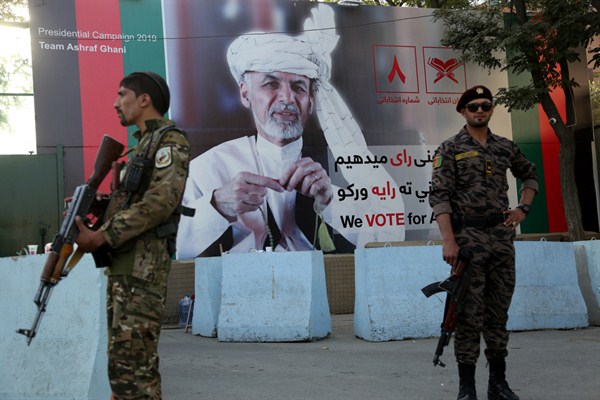Anyone following the ongoing controversies over Afghanistan’s recent presidential election will understandably have a sense of déjà vu. Nearly a month after Afghans voted on Sept. 28, not only is there no clear winner, there is not even any word on when preliminary results will be announced.
Incumbent President Ashraf Ghani remains in office while Abdullah Abdullah, the national unity government’s chief executive and Ghani’s leading challenger, is once again crying foul over allegations of polling fraud. Officials at the Independent Election Commission, or IEC, are struggling to sort out how many voters actually turned out, after suspicions surfaced that about 2,600 biometric voting devices had been tampered with. Only then can they complete the work of counting biometrically verified votes.
The only real certainty is that whenever the IEC eventually announces preliminary results, one or more of the 15 candidates on the ballot will likely contest them. By then, winter snows will be looming over the Hindu Kush and continuing violence will once again threaten any prospect of an expeditious runoff vote should no candidate secure a majority. As it is, Afghanistan is still reeling from the massive wave of attacks that accompanied September’s vote, killing 85 and wounding 373, according to the United Nations. Taliban attacks have been unrelenting since then; only a week ago an estimated 62 people were killed and 36 injured in a bombing at a mosque in the eastern province of Nangarhar.

